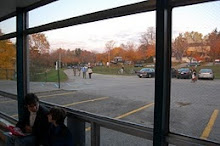I heard about the report from an IEEE article, which does a great job summarizing Buffet’s letter.
Here is a passage I liked: (emphasis added)
This debilitating spiral has spurred our government to take massive action. In poker terms, the Treasury and the Fed have gone “all in.” Economic medicine that was previously meted out by the cupful has recently been dispensed by the barrel. These once-unthinkable dosages will almost certainly bring on unwelcome aftereffects. Their precise nature is anyone’s guess, though one likely consequence is an onslaught of inflation. Moreover, major industries have become dependent on Federal assistance, and they will be followed by cities and states bearing mind-boggling requests. Weaning these entities from the public teat will be a political challenge. They won’t leave willingly.
It goes on to explain how one Berkshire Hathaway subsidiary made good loans and is not in direct trouble, except for the fact it is now competing with politically-connected companies being rescued and subsidized by the government.
This unprecedented “spread” in the cost of money makes it unprofitable for any lender who doesn’t enjoy government-guaranteed funds to go up against those with a favored status. Government is determining the “haves” and “have-nots.”
[snip]
At the moment, it is much better to be a financial cripple with a government guarantee than a Gibraltar without one.
Supporters of aggressive bailout measures tell us to understand that the money is not aimed at the deserving. It’s aimed at stabilizing the economy. If this situation of political connections determining business success goes on for long, it will hurt long-term growth. Before that happens, though, there will probably be a backlash. For believers in aggressive bailouts and stimuli, the measures had better work quickly before the backlash becomes widespread.

